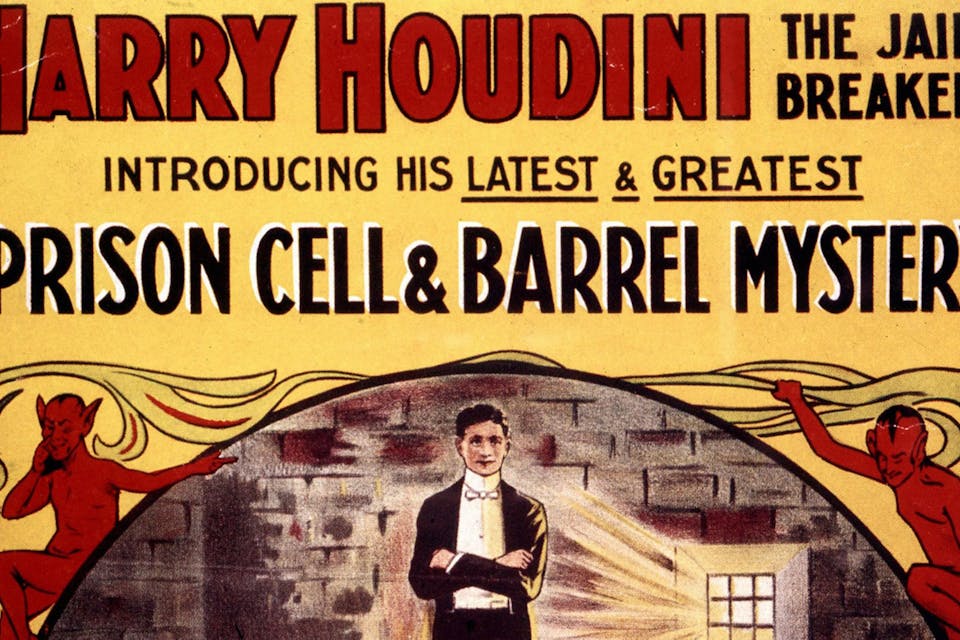
March 17, 2020
What Harry Houdini, the Quintessential Escape Artist, Declined to Escape
Houdini's was the prototypically self-made American tale. But even while turning himself into the world's greatest breaker of constraints, he remained a proudly identified Jew.
“My birth occurred April 6, 1874, in the small town of Appleton in the state of Wisconsin, U.S.A,” wrote Harry Houdini in an autobiographical essay for the Magical Annual of 1910. The sentence is revealing not in its facts—Houdini was actually born on March 24, 1874 in Budapest, Austria-Hungary—but because its falsehoods illustrate the difficulty of attempting a biography of a man who spent his career showing the public only what he wanted it to see.
Not that biographers have been deterred; on the contrary, they’ve multiplied, and the ranks have just recently been expanded by two more: Adam Begley, former books editor for the New York Observer and the author of a life of John Updike, and the sports journalist Joe Posnanski.
Begley, in Houdini: The Elusive American, a volume in Yale’s Jewish Lives series, offers a succinct account of the escape artist’s life and a window into the forces—both Jewish and non-Jewish—that shaped his psyche. Posnanski, in The Life and Afterlife of Harry Houdini, interweaves Houdini’s story with anecdotes about his fans and his professional inheritors. Different in focus, both books are compelling additions to the voluminous literature surrounding one of America’s most influential showmen.